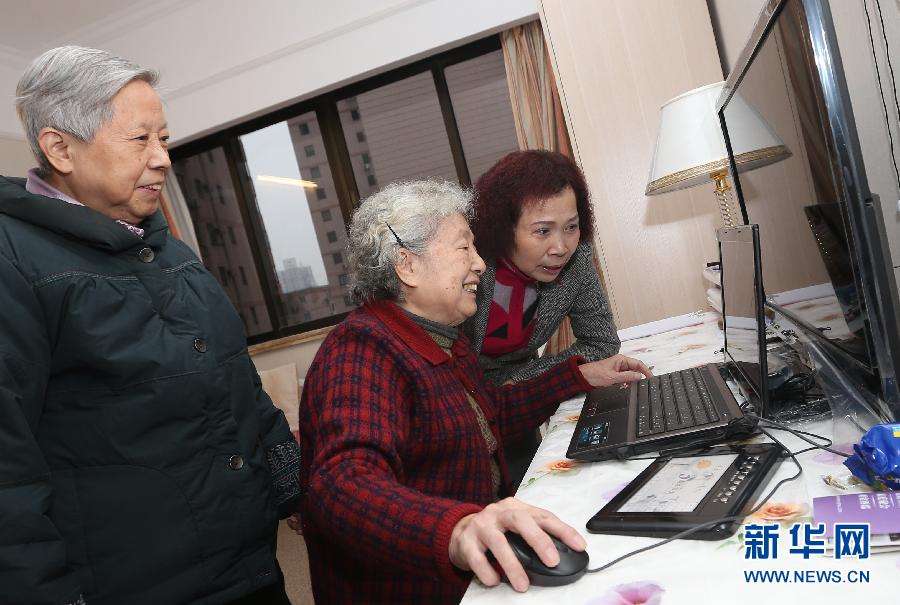


(Photo/Xinhua)
The silver hair group in China is growing into a new driving force for the development of the national digital economy, Economic Information Daily reported on Oct. 11.
In 2018, Chinese people who are aged over 65 reached 166 million, thereby accounting for 11 percent of the national total, according to the National Bureau of Statistics. The number is also expected to rise for the years to come, laying a solid foundation for the booming silver hair economy.
“The older people in China are growing into a major group in terms of digital consumption, thanks to the popularity of smart phones and mobile payment systems,” quotes a report on Chinese people’s consumption during the past National Day holidays.
The report, which was recently released by the e-commerce giant Alibaba, reveals that the Chinese elderly came to love shopping online, ordering food and buying tourist products online. On top of that, they’re quite willing to spend on some high-end experiences and medical cosmetology.
He Xuping is one of the old-aged netizens in China. She is in her 60s, but more than 50 apps are downloaded to her mobile phone for the use of online chatting, shopping, payment, learning or wealth management.
Like He, an increasing number of old people are embracing the convenience of digital technology and moving to improve their life quality with more expenditures via digital devices. As is shown in the data released by China’s top Internet enterprises, the per capita expenditure among Chinese old people experiences a constant growth.
In a report on the development of China’s aging industry, the China National Committee on Ageing (CNCA) noted that expenditures stemming from the aging group in China will increase to 106 trillion yuan ($14.9 trillion) by 2050, contributing to one third of the national GDP.
By 2050, China’s aging industry will be worth almost 22 trillion yuan, according to the estimation of the National Social Science Fund of China.
 Fire brigade in Shanghai holds group wedding
Fire brigade in Shanghai holds group wedding Tourists enjoy ice sculptures in Datan Town, north China
Tourists enjoy ice sculptures in Datan Town, north China Sunset scenery of Dayan Pagoda in Xi'an
Sunset scenery of Dayan Pagoda in Xi'an Tourists have fun at scenic spot in Nanlong Town, NW China
Tourists have fun at scenic spot in Nanlong Town, NW China Harbin attracts tourists by making best use of ice in winter
Harbin attracts tourists by making best use of ice in winter In pics: FIS Alpine Ski Women's World Cup Slalom
In pics: FIS Alpine Ski Women's World Cup Slalom Black-necked cranes rest at reservoir in Lhunzhub County, Lhasa
Black-necked cranes rest at reservoir in Lhunzhub County, Lhasa China's FAST telescope will be available to foreign scientists in April
China's FAST telescope will be available to foreign scientists in April "She power" plays indispensable role in poverty alleviation
"She power" plays indispensable role in poverty alleviation Top 10 world news events of People's Daily in 2020
Top 10 world news events of People's Daily in 2020 Top 10 China news events of People's Daily in 2020
Top 10 China news events of People's Daily in 2020 Top 10 media buzzwords of 2020
Top 10 media buzzwords of 2020 Year-ender:10 major tourism stories of 2020
Year-ender:10 major tourism stories of 2020 No interference in Venezuelan issues
No interference in Venezuelan issues
 Biz prepares for trade spat
Biz prepares for trade spat
 Broadcasting Continent
Broadcasting Continent Australia wins Chinese CEOs as US loses
Australia wins Chinese CEOs as US loses